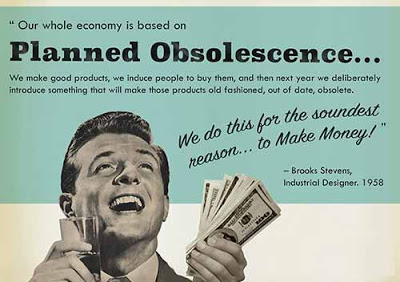tag > Regenerative
-
Is Marijuana an ‘Essential’ Like Milk or Bread? Some States Say Yes (NYTimes)

With the coronavirus pandemic spreading rapidly across the country, millions of Americans are being told by state and county officials to take refuge at home, and only venture out to get things they really need. And in many places, marijuana makes the list. Over the past week, more than a dozen states have agreed that while “nonessential” stores had to close, pot shops and medical marijuana dispensaries could remain open — official recognition that for some Americans, cannabis is as necessary as milk and bread.
-
World's wind power capacity up by fifth after record year (Guardian)

The world’s wind power capacity grew by almost a fifth in 2019 after a year of record growth for offshore windfarms and a boom in onshore projects in the US and China. The Global Wind Energy Council found that wind power capacity grew by 60.4 gigawatts, or 19%, compared with 2018, in one of the strongest years on record for the global wind power industry.
Oil price may fall to $10 a barrel as world runs out of storage space (Guardian)
Facilities thought to be 75% full with Saudi Arabia due to ramp up output as demand falters amid coronavirus shutdowns
-
After series of cuts, India axes Bayer's GM cotton royalty (Reuters)
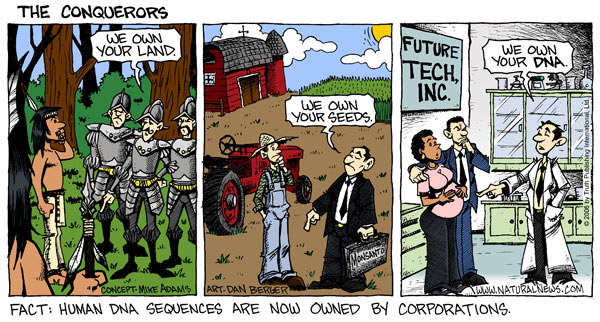
India has axed the royalties that local seed companies pay to German drugmaker Bayer AG for Monsanto’s genetically modified (GM) cotton, a government order said, after cutting them back since 2016.95% of cotton grown in India is by Monsanto; 75% debt of farmers is on account of input costs; over 3.2 lakh Farmer Suicides due to debt.
-
Earth's Soil Could Absorb 5.5 Billion Tonnes of CO2 Annually, if We Get It Right (Nature)
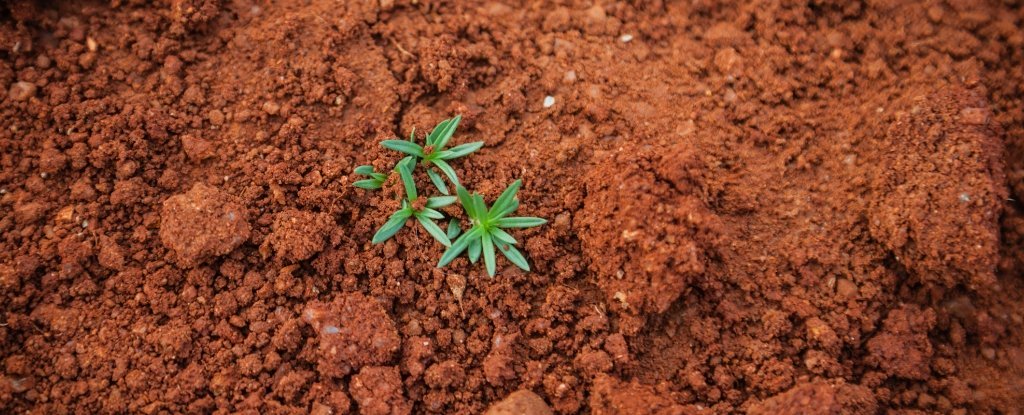
A new paper in the journal Nature Sustainability analysed the potential for carbon sequestration in soils and found it could, if properly managed, contribute a quarter of absorbtion on land. The total potential for land-based sequestration is 23.8 gigatonnes of CO2-equivalent, so soil could in theory absorb 5.5 billion tonnes annually. Most of this potential, around 40%, can be achieved simply by leaving existing soil alone - that is, not continuing to expand agriculture and plantation growth across the globe.
The Diversity of Tropical Forest Carbon Sinks Is More Complicated Than We Thought (IIASA)

Tropical forest ecosystems are an important part of the global carbon cycle as they take up and store large amounts of CO2. It is however uncertain how much these forests’ ability to take up and store carbon differ between forests with high versus low species richness. New IIASA research sheds light on this question aiming to enhance our ability to predict tropical ecosystems’ strength as global carbon sinks. Paper: Shedding light on how much carbon tropical forests can absorb (2020, IIASA)
-
Put clean energy at the heart of stimulus plans to counter the coronavirus crisis (IEA)
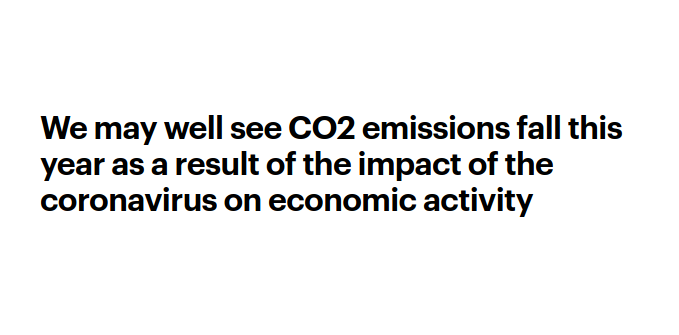
The impact of the coronavirus around the world and the resulting turmoil in global markets are dominating global attention. As governments respond to these interlinked crises, they must not lose sight of a major challenge of our time: clean energy transitions.
-
Interview with Sissi Chao, passionate and inspirational entrepreneur, founder of REmakeHub

Sissi Chao has master’s degrees from the London School of Economics and Political Science, St Andrews University and Duke University. She has worked in a consulting firm Accenture as well as in the tourism industry at Mouzenidis Group in Greece. She decided that her life mission is to clean up the waste, turn them into renewable resources and recover the planet ecosystem. Her projects “Made for Saving Our Ocean” & “Fashion from Waste” is now on view as part of the socially responsible startup called “REmakeHub”.
-
What Happened After Market Street in Sanfranscio Went Car-Free (citylab)

Less than two months after San Francisco’s Market Street went mostly car-free, the central downtown artery is palpably calmer. While freight deliveries, fire trucks, buses and streetcars are still trundling along the vehicle lanes, navigating by bike, scooter or foot feels far less death-defying now that clots of private autos and ride-hailing vehicles are no longer allowed to vie for space among them.
-
South Sudan Is Building Its Electric Grid Virtually From Scratch (IEEE Spectrum)
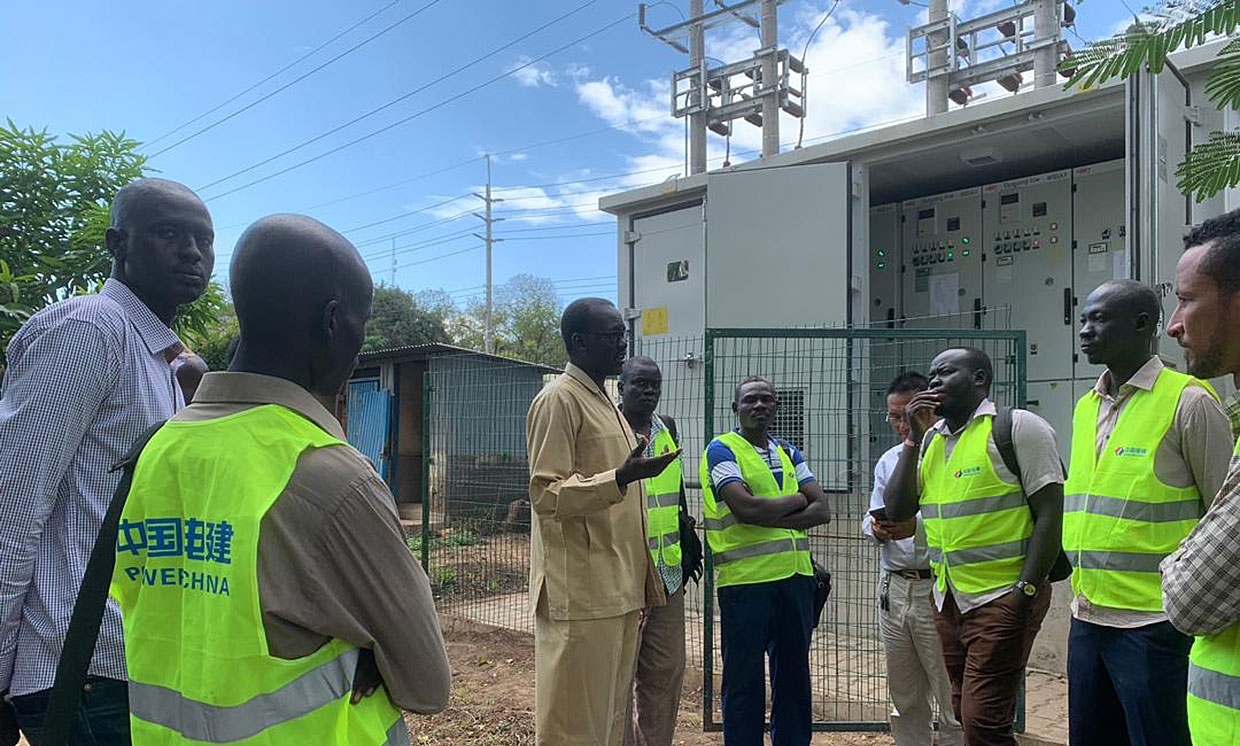
Jacob M. Deng, in a khaki suit, talks with utility workers during the commissioning of a substation in Juba, South Sudan. The government could instead partner with private investors to “lay decentralized grid networks” and provide incentives for “a mix of solar, small hydro and thermal power” that’s generated by independent producers, households, and institutions, the Sudd Institute, an independent research organization, wrote in a 2018 report. That way, should the country’s fragile peace unfurl, people would still have access to electricity to meet their basic needs.
-
London’s Trees Are Saving the City Billions (citylab)

#Comment: Why is the "saving money" perspective used so frequently when talking about nature ("nature based services" etc.)? Do these foolish people really not comprehended, that the notion that "Nature = Money" is at the very core of the problem they pretend to address?
#Regenerative #Urban #Infrastructure #Economics #ClimateChange
-
Roads made out of recycled plastic
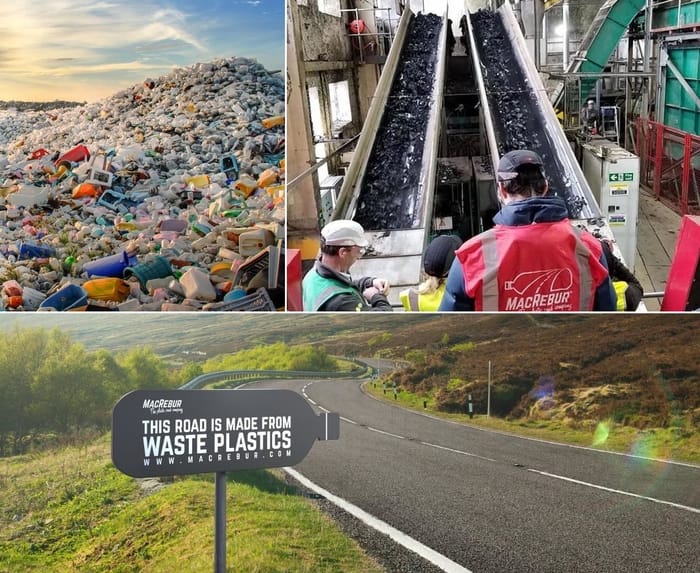
Scotland-based MacRebur company creates pellets out of recycled plastic waste and lays roads that are 60% stronger and expected to last about ten times longer than asphalt roads. One kilometer stretch of road uses the equivalent of about 684,000 plastic bottles or 1.8m single-use plastic bags.
-
Europe Wants a ‘Right to Repair’ Smartphones and Gadgets (nytimes)
The European Union announced an ambitious plan on Wednesday that would require manufacturers of electronic products, from smartphones to tumble driers, to offer more repairs, upgrades and ways to reuse existing goods, instead of encouraging consumers to buy new ones. The “right to repair,” part of a wide-ranging policy package known as the Green Deal that was introduced this month, is the latest example of the European Union’s ambitions to promote more sustainable economic growth and to prevent waste.
-
Climate change is only half the problem. We’re destroying the Earth’s layer of life
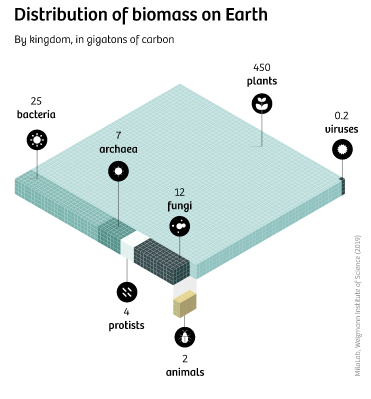
Along with the climate crisis, the disappearance of non-human life is our most pressing problem. To fully understand how big the problem is, we need to think of this loss in terms of biomass instead of the number of species.
We cannot live on a dead planet. But it’s unknown how much non-human life we really need for Homo sapiens to survive. If people can manage in martian base camps with tanks of tilapia and a few green plants, a great deal more can be destroyed before our planet becomes truly unliveable.
But is that a life still worth living?
-
Global Electricity Review 2020 - by ember
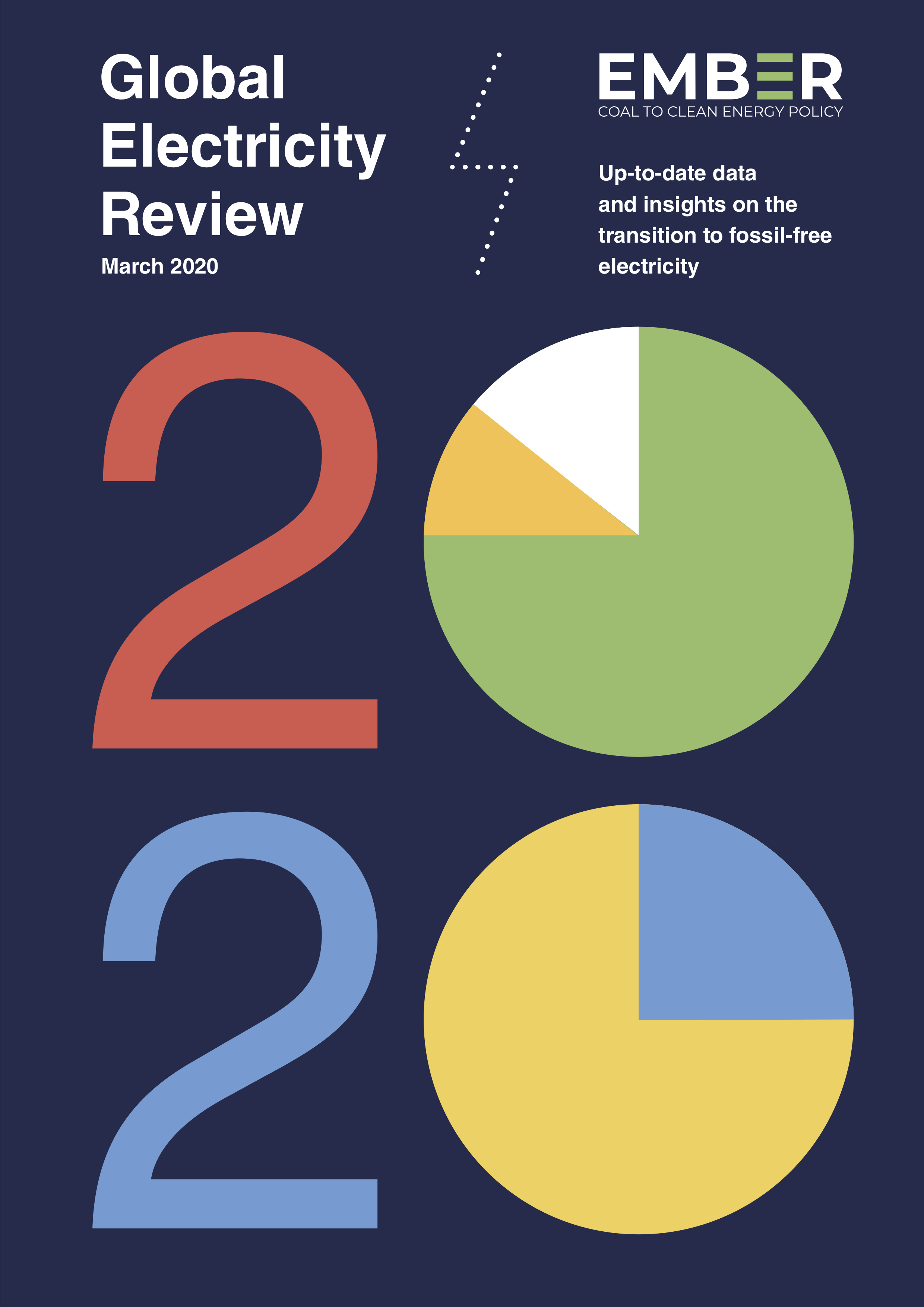
Key finding 1: Global coal-fired electricity generation fell by 3% in 2019, leading to a 2% fall in CO2 power sector emissions.
2: But falling coal generation is not yet the “new normal”, which means limiting climate change to 1.5 degrees is looking extremely difficult.
3: Wind and solar generation rose by 15% in 2019, generating 8% of the world’s electricity.
4: The US coal collapse is undermined by a switch to gas, whereas the EU is leapfrogging from coal to wind and solar. -
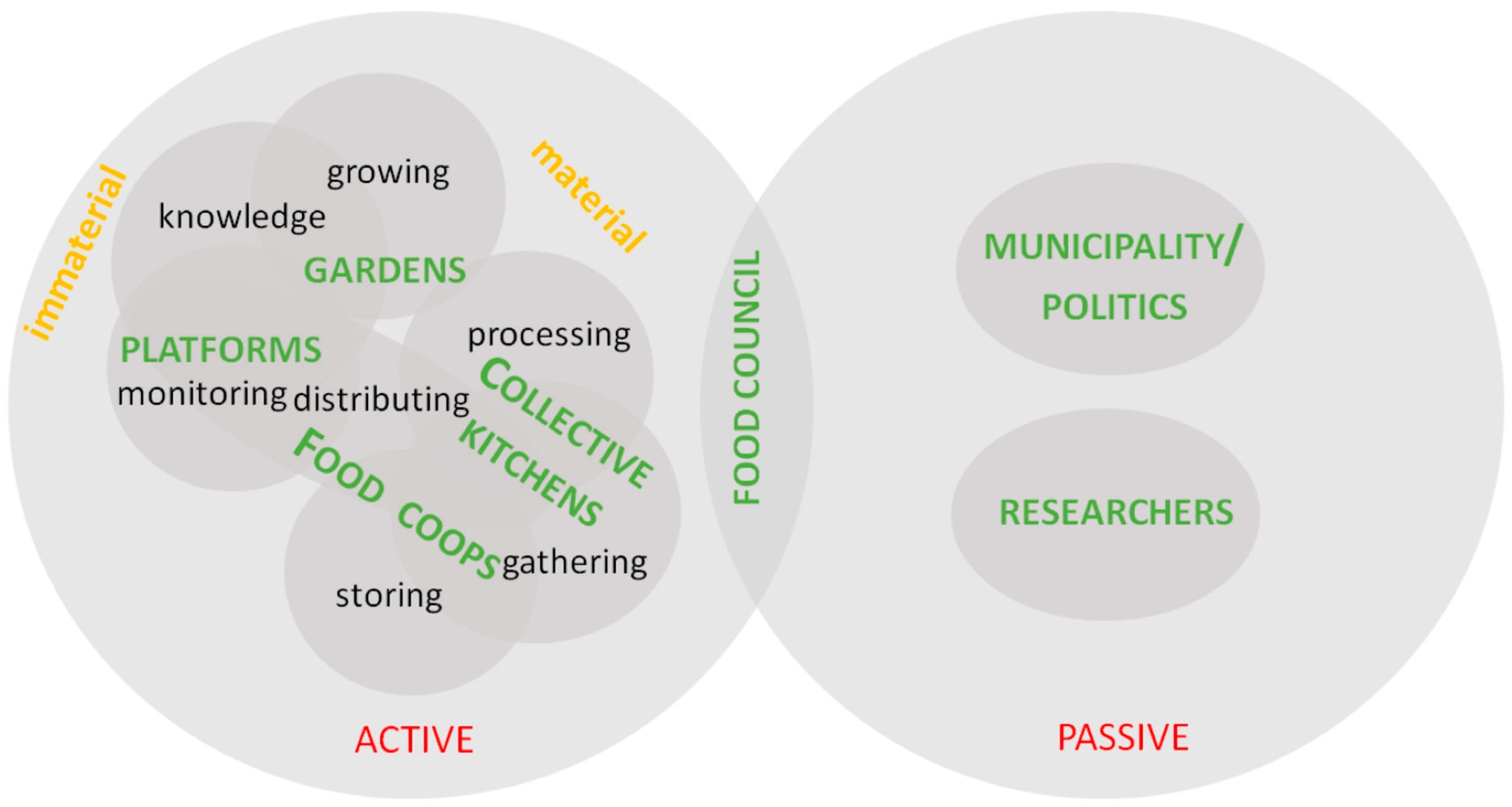
Abstract: Urban planning is facing multi-layered challenges to manage the transformation towards a more sustainable and inclusive society. The recently evolved concept of an “urban commons” responds to the crucial need to re-situate residents as key actors. Urban food commons summarize all initiatives that are food-related (e.g., cultivation, harvest, and distribution), aiming at a visualization and utilization of value chains and the commons-based linkage between them.
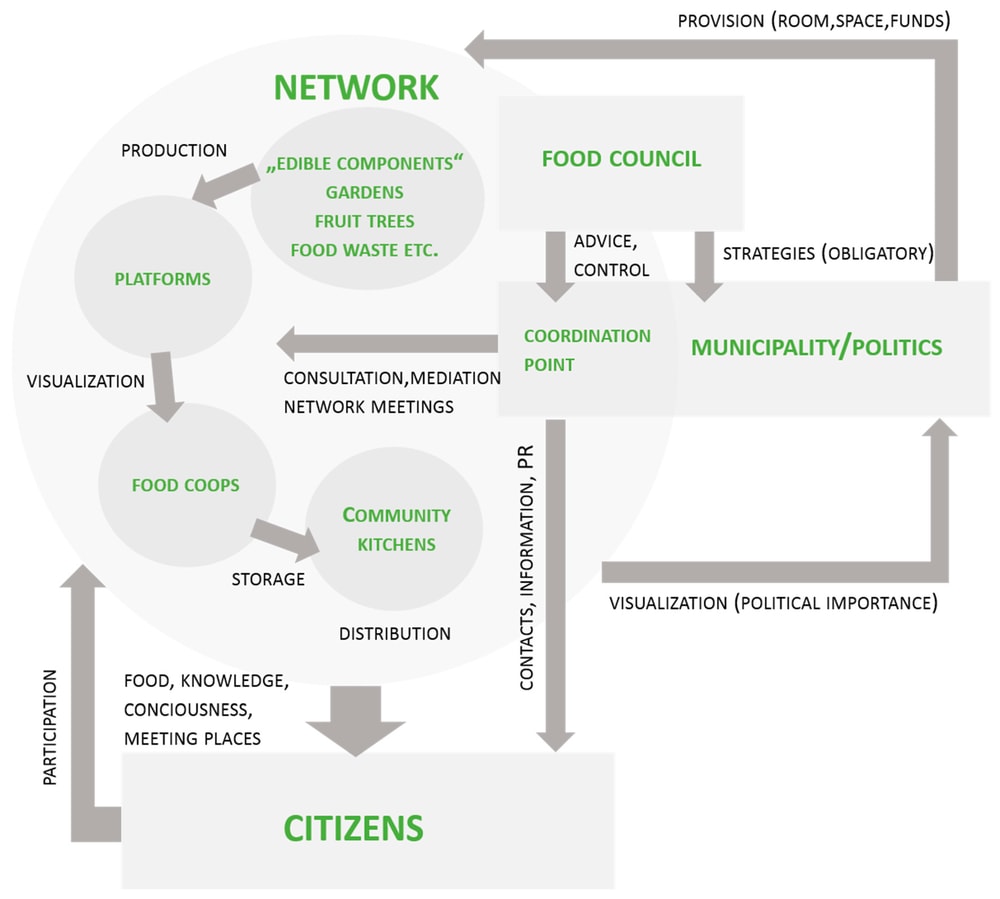
We explored first insights of food commons in Berlin based on semi-structured, in-depth interviews. Urban food commons strengthen identification, participation, self-organization, and social resilience, are steered by bottom-up processes, and can be a powerful tool for a transformation towards urban sustainability. However, a viable political integration of existing initiatives lacks due to structural implementation problems. Respondents recommend a pooling of all initiatives in a strong network and a mediation interface to coordinate between food commons and city administration and politics. A combined approach of commons and edible cities will be helpful for the development of future prove food systems.
Sharing food and risk in Berlin’s urban food commons (2018)
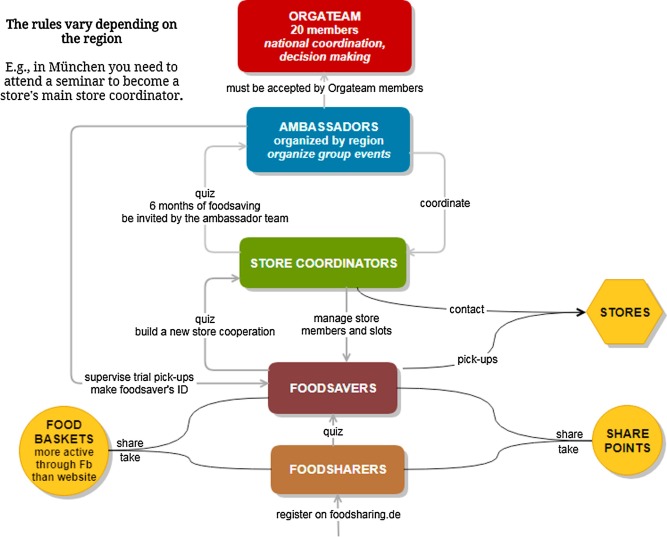
Abstract: Public fridges are open-access community-stewarded spaces where food can be freely and anonymously shared. As such, they are fertile ground for understanding the obstacles and opportunities for governing food as a commons. This paper examines the governance strategies that have developed within and around Foodsharing.de, a grassroots food-rescue network in Berlin, to manage food as a commons. Analyzing the commoning of food in Foodsharing.de provides a novel entry point into the multi-scalar and multi-stakeholder governance processes that shape our broader food system. In this paper, I further develop the concept of urban food commons to specifically analyze the governance of food and risk. In particular, I draw on qualitative research to analyze a conflict between Foodsharing.de and the Berlin Food Safety Authority over the potential health and safety risks of public fridges. Building on this, I show how different governance practices, informed by different risk ontologies and understandings of the common good/hazard of food, come into tension through the everyday practices of sharing food. This paper departs from previous research that has focused on how the benefits of food commons are shared and regulated at various scales, to also explore how their risks are managed, or could be managed, within an urban food commons framework.
-
Foodcommons - A ground breaking system to scale local food and restore our commonwealth
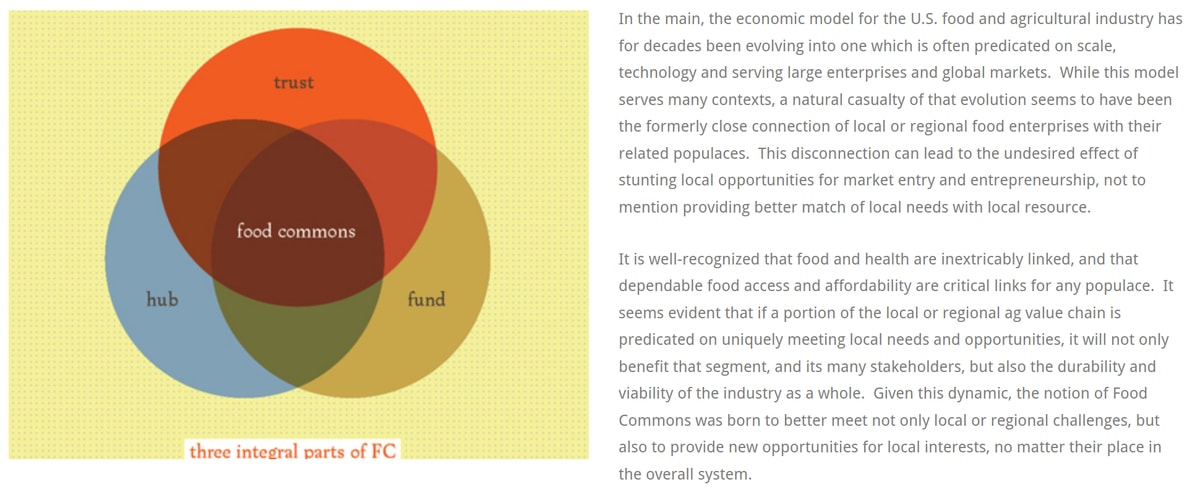
-
Thinking Like A Forest: A Design Agenda for Bioregions - talk by John Thackara (2015)
Regenerative City - talk by John Thackara at Tongji University (2018)
-

This study reviewed 147 life cycle studies, with 28 found suitable for harmonizing food waste management methods’ climate and energy impacts. A total of 80 scientific soil productivity studies were assessed to rank management method soil benefits. Harmonized climate impacts per kilogram of food waste range from −0.20 kg of carbon dioxide equivalents (CO2e) for anaerobic digestion (AD) to 0.38 kg of CO2e for landfill gas-to-energy (LFGTE).


